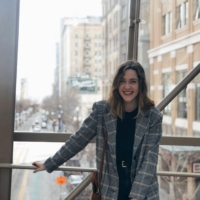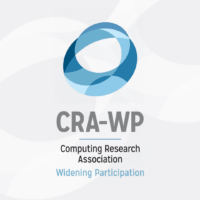Get To Know CSGrad4US: Highlighting Current Fellows
By Elora Daniels, Communications Associate
In 2023, the Computing Research Association (CRA) was awarded its largest grant to date ($42.1 million, to be exact) to manage the NSF CSGrad4US Fellowship program. CSGrad4US aims to support individuals returning to school to pursue a PhD in computing after being away from the academic landscape, enabling them to engage in innovative and high-impact projects without the burden of financial constraints. Accepted applicants participate in a year-long preparation program, during which mentors and coaches help them identify which graduate programs are a fit, find a research mentor, and apply. Once enrolled in a qualifying graduate program, fellows receive three years of funding (stipend, tuition, etc.).
Applications for the CSGrad4US Fellowship are open until May 31, 2024.
This unique opportunity is open to anyone who has been out of school since January 2024. To help answer questions from the community and provide general insights into the program, the CSGrad4US team hosted an informational webinar to answer questions for those interested in applying this year.
If we haven’t hooked you yet, read on! Each participant in the CSGrad4US Fellowship has a wonderfully unique story and inspiring reasons for wanting to return to school – we’re highlighting a few of the incredible fellows below:
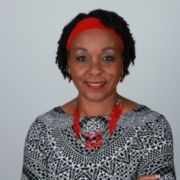 Tonya Davis, Purdue University
Tonya Davis, Purdue University
Computer Information Technology — Computer Science Education
Tonya earned a BS in Computer Science Engineering and a Master’s in Business Administration from Washington University in St. Louis. She started her career in industry as a Marketing Representative for IBM after undergrad and as a Senior Product Manager for Texas Instruments after graduate school before segueing into education. She taught as an adjunct instructor at Wharton County Junior College and The University of Houston Downton before teaching secondary math and computer science. She is passionate about broadening participation in computer science and STEM and helping to eliminate barriers to access and engagement for students traditionally left out of tech careers. Her research interests are in computer science education teaching and learning. She is currently a mentor in the MENTORS in CS (Matching Experienced and Novice Teachers for Ongoing Rigorous Support in Computer Science) RPP with the Computer Science Teachers Association, supported by the National Science Foundation.
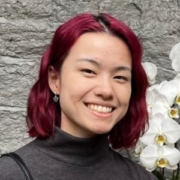 Yucen Lily Li, NYU
Yucen Lily Li, NYU
Computer Science — Machine Learning
Lily is a 2nd year CS PhD student at NYU advised by Prof Andrew Wilson. Lily is interested in machine learning generalization, and she has explored and improved the behavior of models in settings such as class imbalance and distribution shifts. She is also interested in probabilistic deep learning and uncertainty estimation, and she has interest in leveraging Bayesian methods to tackle foundational challenges in machine learning. Previously, Lily worked on the Bayesian Modeling team at Meta, where she created probabilistic models and developed and implemented various inference methods. She received her BS in CS from CMU, where she worked on projects related to machine translation and interest in open-source communities.
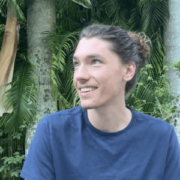 Ian Michael Terry, UC Santa Cruz
Ian Michael Terry, UC Santa Cruz
Computer Science and Engineering — Computational Ecology
I was born in Miami, FL, and studied computer science at Florida State University. When I was graduating, I had aspirations of continuing my education, but I also wanted to try working a job with my newfound degree. After 5 years of working as a software engineer, the possibility of a return to academia felt entirely out of reach, until I one day received an email from the NSF. Since then, CSGrad4US has helped me navigate the path back to academia; I am now a new PhD student pursuing interdisciplinary research in computer science! It’s a new world for me, and I am very excited for what’s to come.
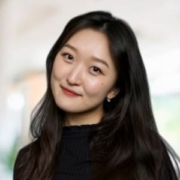 Jina Yoon, University of Washington
Jina Yoon, University of Washington
Computer Science & Engineering — Human-Computer Interaction
Jina Yoon is a PhD student of Computer Science & Engineering at the University of Washington, advised by Professor Amy X. Zhang. As a social computing researcher, her work explores the tension between user agency and platform design in online community moderation, especially for youth and neurodivergent populations. She advocates for online safety approaches that empower teens and augment their social strengths. Her research also examines how social media platforms can both help and harm the neurodiversity movement, especially for intersectional identities. Before starting her doctoral degree, she worked at Riot Games on the League of Legends Global Player Community team, as well as at Microsoft on device management and security. She earned her BAs in Computer Science and Modern Culture & Media from Brown University.
Learn more about our current CSGrad4US Fellows, the program, and the application process at https://cra.org/csgrad4us/
Want a glimpse into how CSGrad4US has changed the lives of our fellows? Hear directly from some of our fellows about what they’ve gained (so far) from the mentoring program: https://www.youtube.com/watch?v=GsnFrgpJaZ0








